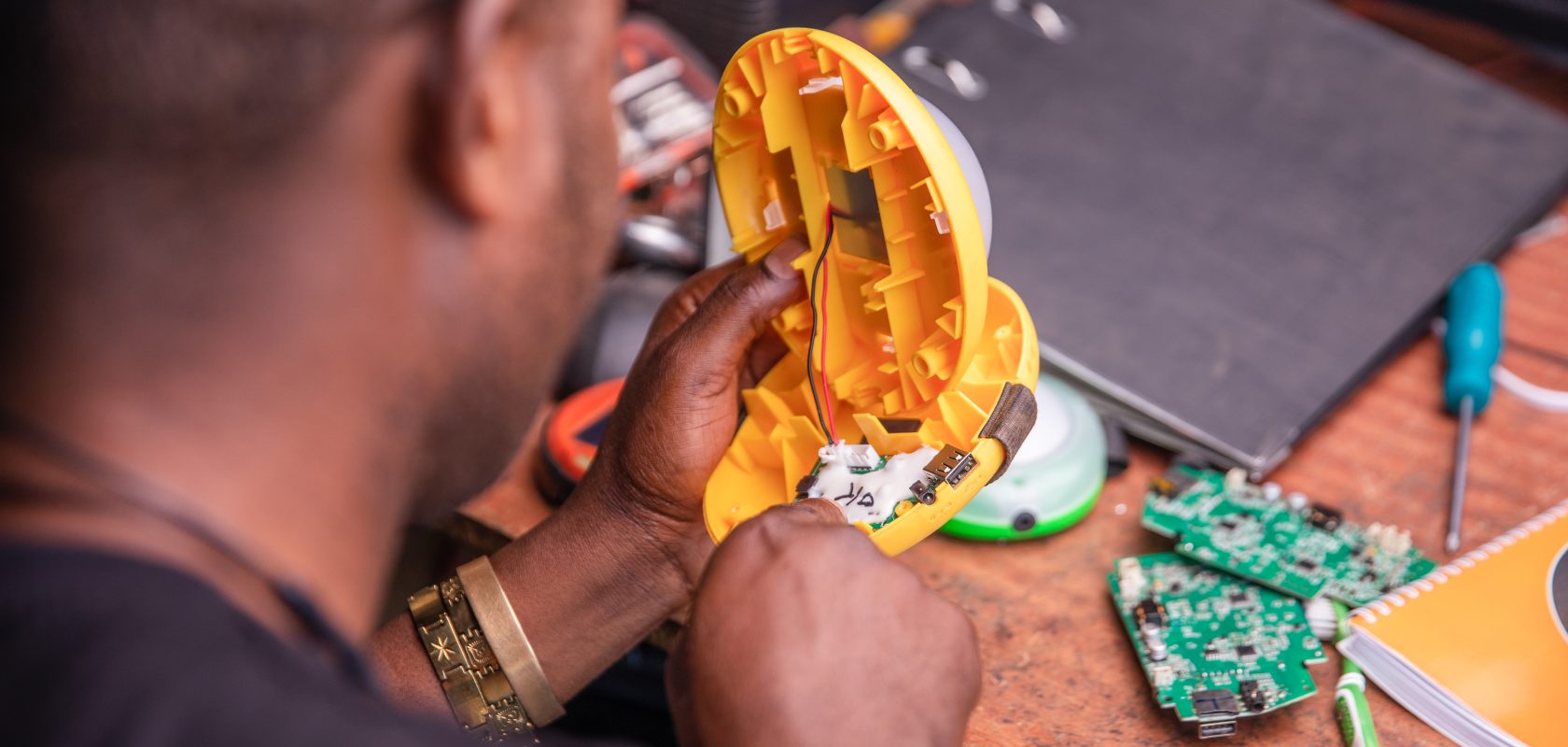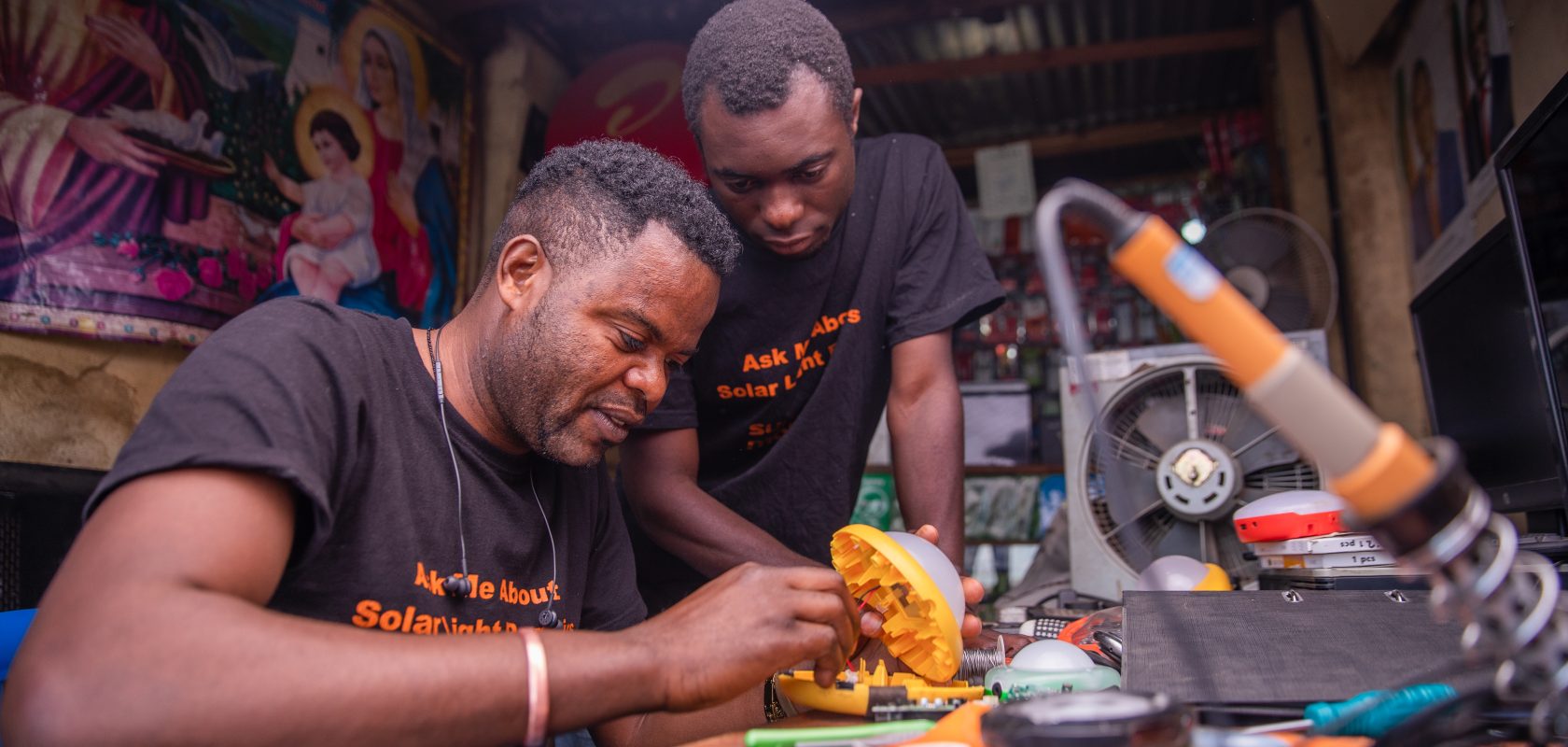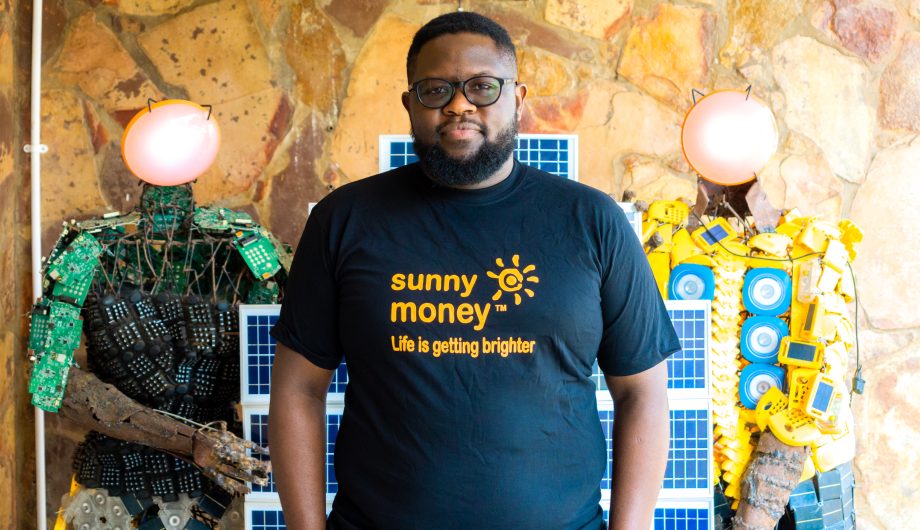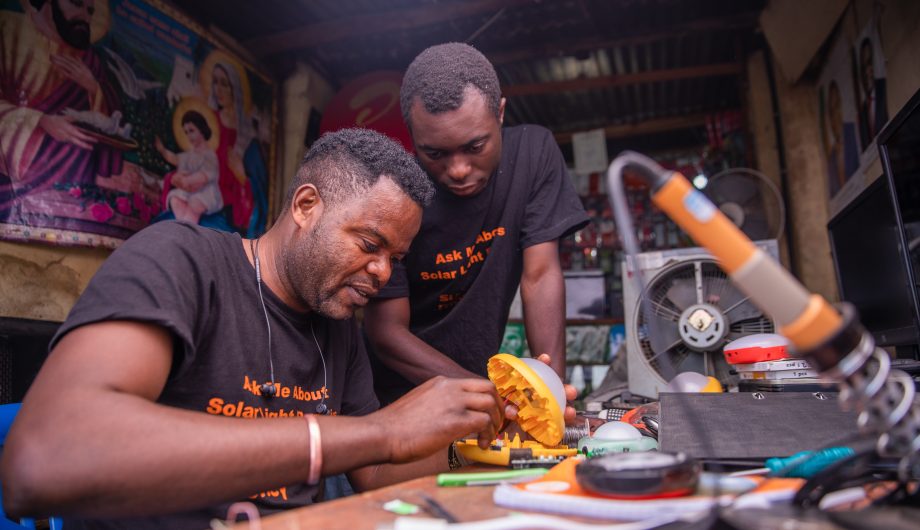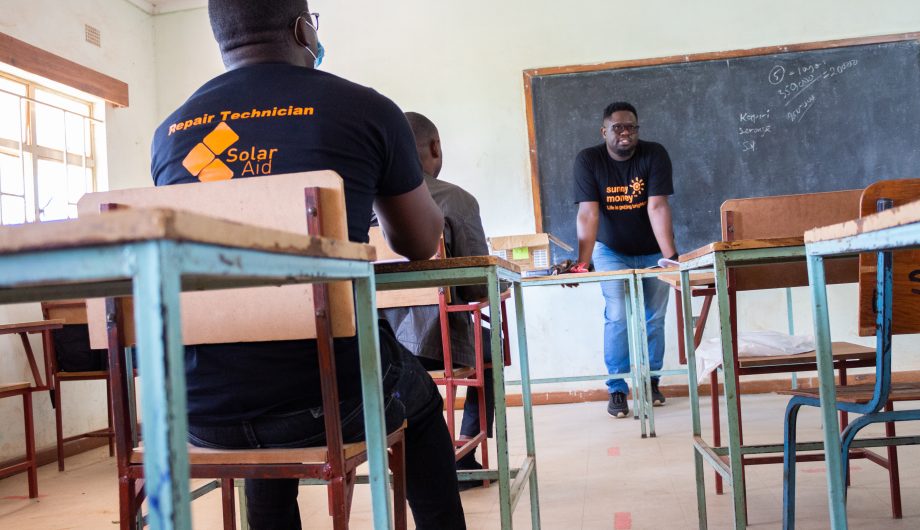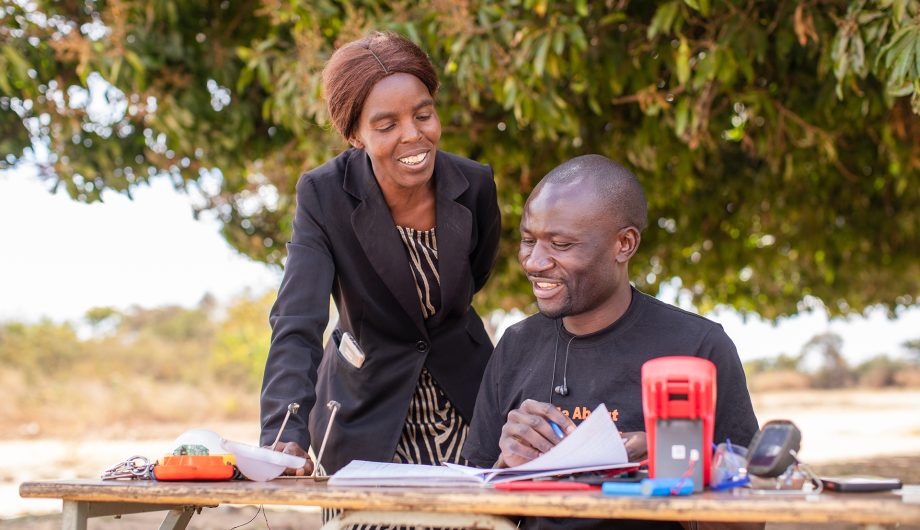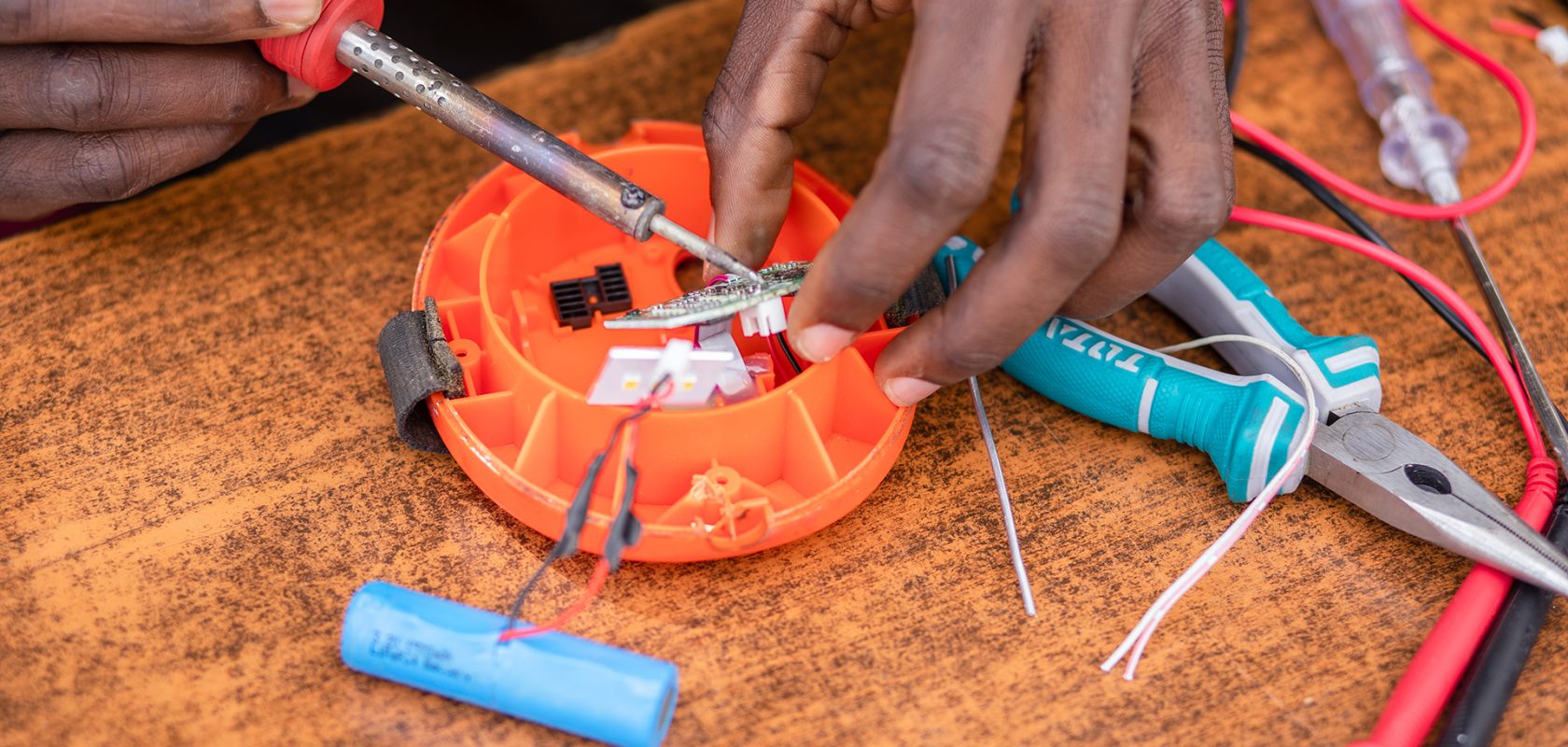SolarAid has long recognised the importance of ensuring off-grid solar products can be repaired, reused and recycled. This maximises product lifespans and customer value, while also minimising the growing electronic waste problem.
Why Repair
Since 2010, an estimated 150 million solar products have been distributed throughout Africa, revolutionising electricity access for millions of off-grid and rural households. However, it is estimated that nearly 75% of these products have stopped working adding to the ever growing problem of electronic waste.
While recycling initiatives play an important role in reducing e-waste, in rural areas the infrastructure to recycle doesn’t always exist. Repair offers an alternative that extends the life of solar lights, increases customer value for money and allows for the development of a local repair and reuse economy. Alongside rural communities, solar entrepreneurs and repair technicians, we identified the barriers which limit the repair of solar light systems for people living in rural, off-grid areas to create a sustainable and scalable programme.
How does it work – creating a circular economy
SolarAid extends the life of small solar lights through better maintenance and local, decentralised repair. We train and equip repair technicians with the tools they need, and conduct community repair days where customers bring their non-working lights for diagnosis and repair.
To help increase access to technical knowledge, as well as develop best practice guidance, we have also developed an open source repair App. This tool is designed to help technicians across the continent to troubleshoot and repair leading solar products on the market.
